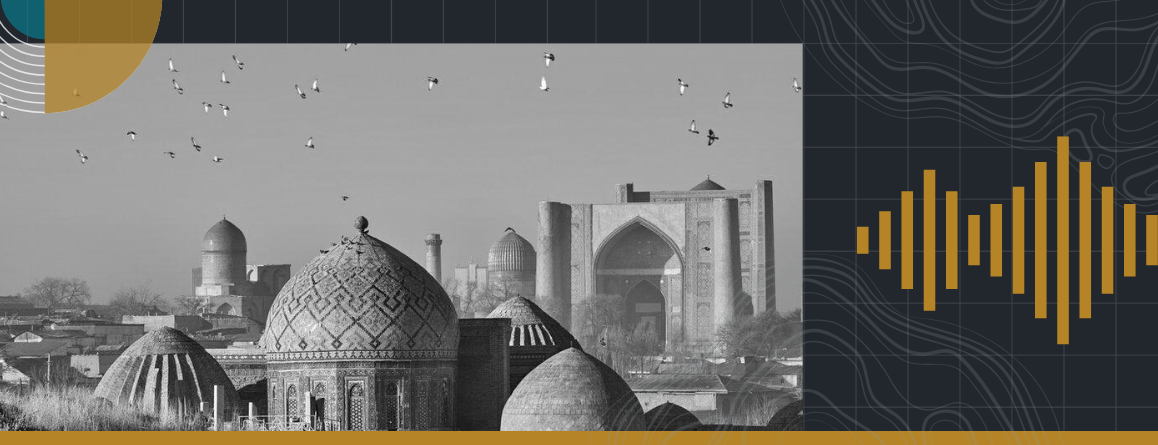On November 15, 2024, President Shavkat Mirziyoyev signed amendments to Uzbekistan’s law “On the legal status of foreign nationals and stateless persons”. These changes, specifically to Articles 29(1) and 35(1), aim to enhance state security and sovereignty through the inclusion of foreign individuals who engage in public actions or calls that oppose the state’s interests in a “List of foreign citizens and stateless persons whose presence in Uzbekistan is deemed unacceptable.”
The inclusion of individuals in the “List of foreign citizens and stateless persons whose stay in the Republic of Uzbekistan is deemed unacceptable” without clear and objective criteria poses significant human rights concerns. Freedom for Eurasia acknowledges that every country has the sovereign right to regulate the entry of foreigners. However, the vague criteria for inclusion in the “List of foreign citizens and stateless persons whose stay is deemed unacceptable,” such as actions that allegedly “discredit the honor and dignity” of Uzbekistan, create the potential for arbitrary restrictions on entry used against foreign journalists and human rights experts who dare to criticise the Uzbek authorities. These ambiguous grounds leave room for subjective interpretation and can be easily abused to block individuals based on political or personal reasons, rather than objective legal standards. This undermines both transparency and fairness in the application of immigration policies and could deter foreign human rights monitors, foreign journalists and critics from engaging with the country.
The law imposes a five-year ban on certain foreign nationals and stateless individuals, which can be extended. However, the process for adding individuals to the list lacks clear criteria and transparency, violating the principle of legal certainty and opening the door for potential abuses. Furthermore, individuals with permanent or temporary residence permits may lose their status if they are added to the list. The amendments do not provide a mechanism for individuals to appeal their inclusion in the list. Broad and imprecise terms such as “public calls or actions that discredit the honor, dignity, history of the people of Uzbekistan” can be misused to suppress dissent and limit freedom of speech, which are fundamental democratic principles. The fear of being included in the list may lead to self-censorship among foreign citizens and stateless individuals. This self-censorship further threatens to stifle open debate still present in the foreign press while local critical voices are brutally suppressed.
By January 2020 Uzbekistan had become arguably Central Asia’s most tourism-open country, having granted visa waivers to citizens of 85 different countries. However, second half of Mirziyoev’s nearly eight years rule has seen a wave of prison terms against bloggers, the introduction of punitive new laws, the bloody crackdown on peaceful protests in Karakalpakstan in 2022 and repressions against Karakalpak minority activists. harassment and deportations of foreign journalists and activists. Tashkent seems to want fewer critical eyes coming in.
Despite the fact that many international observers and diplomats hoped that the law will be directed against Russian public figures who have made harsh statements about annexation of Uzbekistan, the reality shows that none of them are subject to the entry ban. However, journalists and human rights activists who conduct research on human rights and other sensitive issues do fall under the ban. Even before the law journalists and activists experienced difficualties accessing the country for monitoring and reporting. Joanna Lillis, Freelance Journalist with bylines in The Economist, Guardian, Independent, Foreign Policy, POLITICO, Eurasianet.org has not been able to have her media accreditation renewed since February 2023 and has been asked by authorities not to carry out any professional activities during trips to the country. Mihra Rittmann, a U.S. citizen and researcher for Human Rights Watch, has not been able to receive the Uzbek visa since April 2024. Journalist and documentary filmmaker Shahida Yakub, an Uzbek-born British citizen was denied entry while on a visit in April 2023.
In 2023, Galym Ageleulov, a consultant for Freedom for Eurasia and human rights defender, was banned from entering Uzbekistan while attempting to board a flight to Tashkent. He was traveling to monitor the trial of Karakalpak human rights defender Dauletmurat Tajimuratov. Despite multiple requests for clarification from both Ageleulov and Freedom for Eurasia, the Uzbek authorities failed to provide an adequate explanation for the entry ban. This incident underscores the potential impact of the newly adopted law, which could be used to target people working in human rights advocacy, particularly those investigating violations in Uzbekistan. It reflects a broader trend of making the country increasingly inaccessible to foreign human rights monitors and critics.
In July 2024, Freedom for Eurasia, alongside other human rights organizations, sent a letter urging President Mirziyoyev to veto the law, expressing concern that it could be used to block foreign journalists, researchers, and human rights defenders, thus undermining freedom of expression and isolating Uzbekistan internationally. Despite these warnings, it is evident that President Mirziyoyev’s administration continues to maintain a policy of secrecy, limiting transparency and engagement with the outside world. The proposed legal amendments have significant implications for human rights and democratic governance it enables arbitrary restrictions on freedom of movement, lack transparency and legal safeguards, and can be used to suppress dissent.The situation in Karakalpakstan serves as a stark reminder of the potential human cost of such policies, highlighting the need for reforms that prioritize transparency, accountability, and the protection of human rights.
